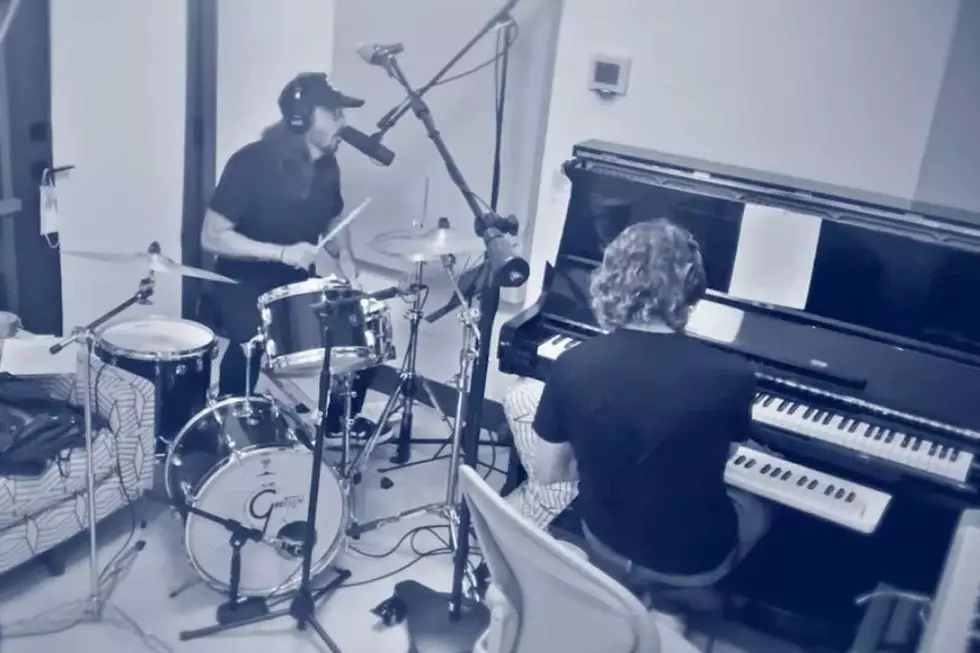40 Years Ago : ‘1969: The Velvet Underground Live’ is Released
By 1969, the Velvet Underground had gone through myriad changes. Since the release of their groundbreaking, though universally ignored at the time, debut album in late 1966, the band parted ways with both Nico and Andy Warhol, lost the services of the great John Cale, and tackled all sorts of sonic exploration. The brittle and haunting starkness of their first album gave way to the distortion overload of 'White Light/White Heat' in 1968, which, in turn, opened the door for their gentler side on the self-titled third LP.
By this time, bassist Doug Yule had replaced Cale, and they were working in a far more traditional context, becoming a genuine, full-fledged rock and roll band. They toured heavily during 1969, ultimately leading to them becoming the tight unit showcased on 1970's 'Loaded.' Those shows became legendary over the years, due in no small part to '1969: The Velvet Underground Live,' which was released in Sept. 1974.
'1969: The Velvet Underground Live' was the first truly solid document of the band in a live setting. True, 'Live At Max's Kansas City' was issued two years prior, but due in part to its very lo-fi recording quality, failed to capture the band in full flight. Not that '1969' is some sort of audiophile's dream, but it is a full-sounding recording and, more to the point, the band are on fire here.
Some of the tracks were recorded in October of '69 at the End of Cole Ave. club in Dallas, while the bulk were from November shows at the Matrix in San Francisco. The set lists and overall energy shown on these nights was fairly typical of the band at this point in time, judging from various bootlegs that have surfaced over the years.
During that tour, the Velvets dug back but also perched forward in selection of material played. 'I'm Waiting tor the Man,' 'Femme Fatale,' 'I'll Be Your Mirror,' and 'Heroin' represent their debut, albeit with a very different feel from the original recordings. 'Femme Fatale,' for instance, takes on a much dirtier rock and roll stance as Lou Reed takes over the vocal spot originally held by Nico. Bassist Doug Yule sings 'I'll Be Your Mirror' with less-than stellar results. Yule and drummer Maureen Tucker do, however, make for a formidable rhythm section, driving it home time and again over the two-album set. A powerhouse take on 'White Light/White Heat' is no match for the sonic assault of the studio version, but they take it in another direction, which proves just as engaging, as Lou Reed's guitar work is nothing short of mind blowing.
Several songs in the set were, at the time of the performance, unreleased. 'We're Gonna Have a Real Good Time Together,' 'Ocean,' 'Lisa Says,' 'Rock and Roll,' and 'Sweet Jane' had yet to feature on any LP and are all given stellar readings here. 'Over You' and 'Sweet Bonnie Brown'/'It's Just Too Much,' as well as 'We're Gonna Have a Real Good Time Together' had also been unreleased. Even those tracks which had come to light via 'Loaded' and Reed's solo debut are found here in vastly different form than their known counterparts.
The pinnacle of the entire set, however, has to be the version of 'What Goes On.' Originally found on the self-titled third album, it was custom-made for the live setting. The relentless groove is pushed to the limit as the band chug on for nearly 10 minutes. Yule takes over on organ to provide not only the low end, but the swirling lead spot as well. To merely say it takes on a hypnotic quality doesn't do it justice. It's a full-on groove machine that could have gone on for an hour without any complaints.
For the recordings made at the Matrix, the band were given use of the club's in-house recording system, something used by many bands, notably the Doors and Jefferson Airplane, over the years. Though the band's one-time manager had these tapes since the '69 dates, nothing was ever done with them. The band broke up and the tapes were forgotten about until Lou Reed's solo career took flight with the 1972 release of 'Transformer.' At this point, Reed's then manager got involved and took back the tapes. Rock critic Paul Nelson was brought in to sort out the tapes and put together a cohesive double album. Upon the album's release, however, a lawsuit was filed by, of all places, the Matrix Club, who had never signed any release regarding commercial use of these tapes. Eventually all legal issues were resolved.
For many, this was the first place several of these songs were heard, and therefore, still holds a special place in the hearts and music libraries of Velvets fans.
More From Ultimate Classic Rock









